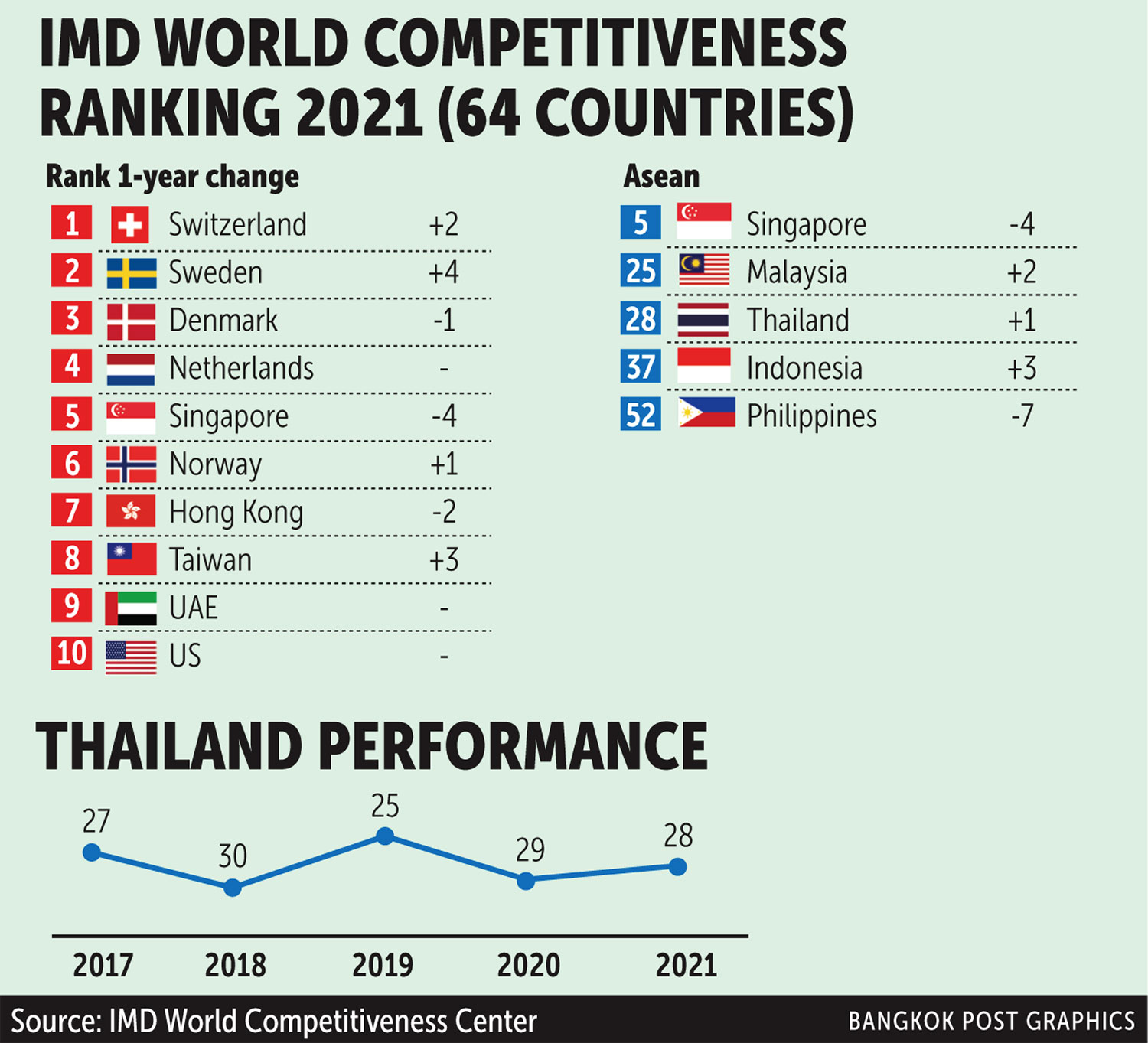Thailand: Nation rises one spot to 28th on IMD index
Thailand climbed one spot to 28th in the 2021 world competitiveness rankings conducted by the Institute for Management Development (IMD), boosted by improvements made in employment and public finances.
However, among its peers within Asean, Malaysia and Indonesia made the greatest gains rising two places to reach 25th and three spots to reach 37th, respectively.
An issue of concern lies in Thailand’s international trade in the sub-factor ranking of economic performance, which saw a significant drop from 5th in 2020 to 21st this year.
The IMD, an independent academic institution with Swiss roots and global reach, ranks 64 economies and assesses the extent to which a country promotes the prosperity of its people by measuring economic well-being through hard data and survey responses from executives. This year, the rankings exposed the economic impact of the pandemic across the globe.
Singapore fell from first to fifth but remains in pole position in Asia. Meanwhile, China advanced four positions to 16th — the sharpest rise among Asian economies.
The US remained in 10th position and the UK climbed one spot to 18th.
The top four rankings were dominated by European countries, namely Switzerland, Sweden, Denmark and Netherlands, respectively.
According to the IMD, Thailand’s rise in rankings is attributed to improvements in several areas such as labour market indicators, including an increase in labour force growth and in-training opportunities for employees in the private sector.
Some other positive notes were also seen in public finances, such as the government deficit still being below 5% as well as business legislation.
The country also displayed some gains in scientific infrastructure, including an increase in scientific research publications, confidence expressed by Thai business managers on collaboration between academia and the private sector, and the protection of intellectual property rights, the IMD indicated.
Christos Cabolis, the chief economist of the IMD World Competitiveness Center, told the Bangkok Post there are several areas Thailand can tackle to increase its competitiveness, including so-called intangible infrastructure.
“Thailand shows considerable scope for improvement in a series of indicators measuring the degree of investments in the quality of its education system at the secondary and tertiary level,” Mr Cabolis said.
Second, the health and environment sub-factor highlights the fact that total expenditure on health as well as the quality of the healthcare system also has room for improvement.
Third, innovation in business processes to reduce environmental impact along with the productivity of private and public companies are further areas which the country should improve to increase its competitiveness, Mr Cabolis said.
He said Thailand, similar to its peers within Asean, has been hindered by the impact of the pandemic with economic performance factors tumbling seven places to 21st and the domestic economy sub-factor declining four places to 41st.
Mr Cabolis said over the short term a rise in government expenditure should be a way to support economic recovery post-pandemic. But over the long term, important public and private investments should be channelled to speed up digital transformation in the public sector and in firms as well as in the formation of digital and technical skills in the workforce.
“These efforts will help increase labour productivity, government efficiency and workforce upskilling with the final result tackling many challenges.”
Source: https://www.bangkokpost.com/business/2134215/nation-rises-one-spot-to-28th-on-imd-index


 English
English




